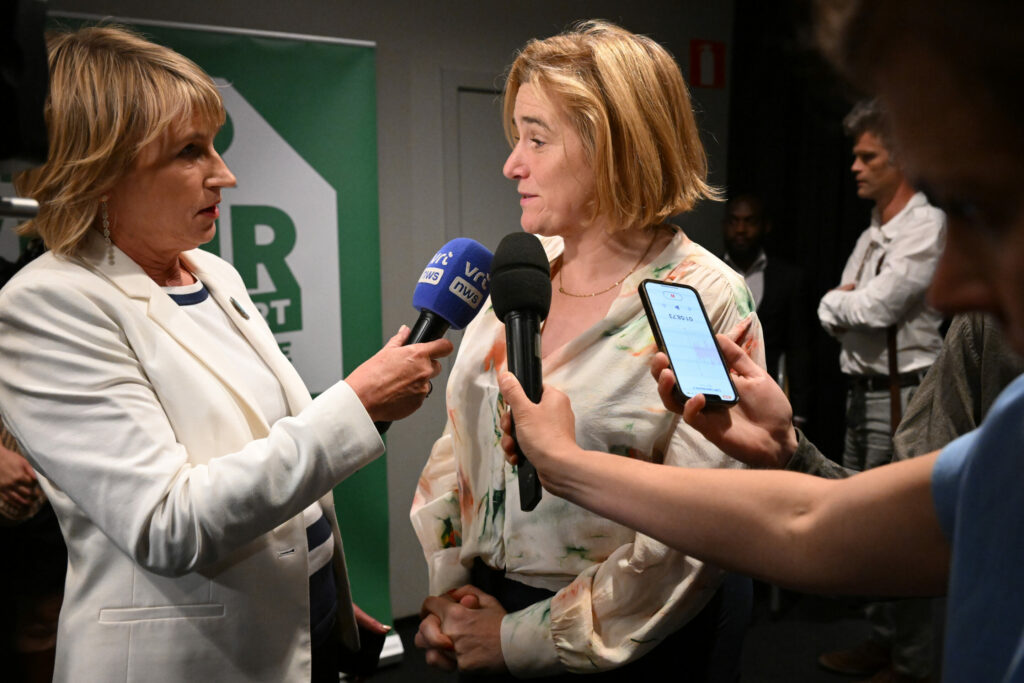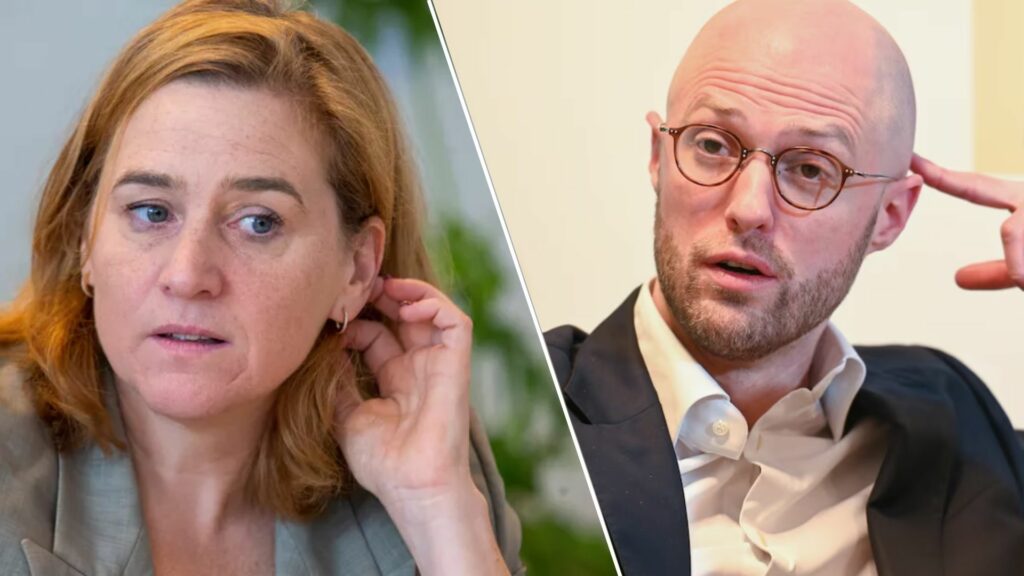The formators negotiating the next Brussels Government, David Leisterh (MR) on the French-speaking side and Elke Van den Brandt (Groen) on the Dutch-speaking side, brought together a number of parties to prepare the budget on Monday, they announced on Tuesday.
Leisterh and Van den Brandt are both seeking a majority in their respective language group, after which negotiations for a coalition agreement can take place with all potential parties.
On the French-speaking side, Leisterh managed to get centre-right parties MR and Les Engagés at the negotiating table with the Socialist Party (PS). At the start of the month, PS confirmed that it was willing to participate in the government negotiations with MR and Les Engagés despite previously saying it would go into the opposition following its June electoral defeat.
This coalition gives the three parties 44 of the 72 seats for French speakers in the Brussels Parliament – a solid majority.
The Dutch-speaking puzzle
On the Dutch-speaking side, the puzzle has not yet been put together, and four parties may be needed to find a majority.
The first meeting took place on Monday with all parties currently willing to enter a government together: Groen (Flemish greens), Open VLD (liberals) and Vooruit (socialists), along with the three Francophone partners.
Together, those three parties have eight seats (of the 17 reserved ones for Dutch speakers). This means one party is still missing to form a majority and start real government negotiations.
Initially, Van den Brandt approached the Flemish Christian Democrats (CD&V), who have one seat, but the party declined as, without a ministerial position, it had nothing to win by entering the majority.

Groen's Elke Van den Brandt. Credit: belga/ David Stockman
On Flemish radio on Tuesday, Van den Brandt admitted that the situation is "very difficult": she is working on a four-party coalition, but there are only three ministerial positions to distribute on the Dutch-speaking side.
"How can you then guarantee that the fourth party can weigh in on policy? I realise this is a very complex and difficult issue that is going to take a lot of negotiating. But at the beginning of the century, when Groen was a much smaller party, we did become the fourth party, got into the majority and tried to make our mark differently."
The six parties that met on Monday agreed to analyse the fiscal situation together and see how a balance could be achieved. "Every coalition agreement starts with the budget, which has to be presented in Parliament on time. Meanwhile, the door is open for one more party," Van den Brandt said.
She stressed that a Dutch-speaking majority is "absolutely necessary". For instance, the powers of the Common Community Commission require a double majority, and a majority is also needed in the Flemish Community Commission (FCC).
The true extent of Brussels' deficit
Therefore, Van den Brandt is intensifying contacts with the other parties: centrist CD&V, rightwing N-VA and Team Fouad Ahidar. However, on both the French-speaking and Dutch-speaking sides, several parties do not want to work with Team Fouad Ahidar. "But in politics, it is important to speak with everyone. After the six-party exercise on Monday evening, the potential partners know in which direction we are going."
On the French-speaking side of the negotiations, Leisterh said that he only learned about "the true extent of the Brussels Region's catastrophic budget situation" during the summer, adding that MR has been in opposition in Brussels for some 20 years. "The deficit in the regional budget will reach €1.4 billion by 2024 – out of a budget of just under €7 billion. With an unchanged policy, the deficit would rise to €2.4 billion, a billion more," he said.
As for formation talks on the French-speaking side, a lot of work has been done since the PS agreed to join the Brussels Government, Leisterh said. "MR, Les Engagés and PS are ready to start negotiations with the Dutch-speaking parties."

